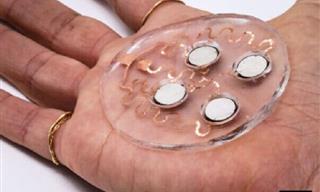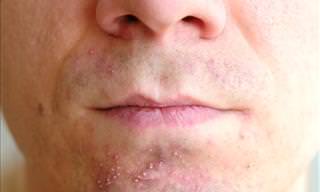All of us have our ideal sleeping positions. Which one is yours? A lot of us sleep on our sides while plenty of people can’t catch a wink without being on their tummies. Sleeping on the back, perhaps, is the least popular of all positions. But how does any of this matter? When we are about to doze off, we hardly think much about our sleeping posture. But you might be surprised to know that the way you sleep can impact your health in several ways.
In a previous article, we had discussed how your Gut and Overall Health May Be Dependent On Your Sleep Position. Now, every sleeping posture has its pros and cons, but many experts say that sleeping on your back is the best. Side-sleeping can lead to premature wrinkles and may cause stiff neck or shoulder pain. Stomach-sleeping, meanwhile, is regarded as the worst posture as it can induce back and neck pain. Sleeping on your back, however, will protect your spine and also helps relieve pain by minimizing pressure on your joints and muscles. Not only this, dermatologists say that sleeping on your back, also known as the supine position, is the best one for prolonging youthful skin. Let’s take a look at how back sleeping can help keep you younger.
1. Can Reduce Breakouts
Did you know that your pillows absorb sebum (an oily substance secreted from the sebaceous glands in the skin) from the skin and hair while you sleep? That sebum residue can be transmitted to your face as you are sleeping on your sides or on your tummy. When this happens regularly, it can lead to skin issues like blackheads, whiteheads, redness, and irritation. When you sleep on your back, your face will automatically be away from the pillow and hence there will be much lesser chances of dirt and oils clinging to it.
2. Fewer Wrinkles on Your Face
Sleeping on your back can also minimize the appearance of fine lines and wrinkles. As we said above, when you sleep on your side or stomach, your face is in direct contact with the pillow. When this happens consistently, it can pinch, pull, and irritate your skin, resulting in noticeable sleep lines and wrinkles on your face which have been linked to premature aging. Sleep lines appear in parallel along the temples, around the eyes, the mouth, and around the lateral cheek area. People who sleep on the same side for years usually have more distinct sleep lines on the side that they sleep on.
At the same time, sleeping on the back keeps your face away from the pillow and thereby reduces your chances of developing premature fine lines and wrinkles. Moreover, this posture can also prevent facial asymmetry – the unevenness in the texture or volume of your face – that can often be caused by years of side or stomach sleeping.
3. Fewer Wrinkles on Your Neck
Apart from preventing wrinkles on your face, back sleeping can also help you have fewer wrinkles on your neck. Your neck can easily be scrunched and tweaked when you sleep on your stomach, causing unwanted lines and wrinkles on the area. When you sleep on the back, though, you won’t be scrunching your head down into your chest and your neck will be extended. This will help it remain less wrinkly.
4. Less Puffiness on Your Face
Do you often wake up with your face puffy or swollen, particularly in the areas of the upper cheek and around the eyes? Sleeping on your stomach or sides may be causing that. When you lie down with your face on the pillow, the pressure of your face into it creates more puffiness around the eyes. That’s because more blood and fluids flow into your face as your head and your heart are lying at the same level, giving the impression that the area is swollen. A few good nights of back sleeping, where your head is elevated, will help control where the fluid goes and can help you avoid bags and puffiness around the face. You are then likely to wake up looking fresh.

5. You Will Wake Up With The Sun
Another little-appreciated benefit of sleeping on your back at night is that you are likely to wake up with sunlight streaming down your face. When this happens in the morning, your brain will better receive the signal from the sun about waking up. Moreover, getting some sun every day is actually quite good for your skin. Taking in a few UV rays right in the morning may give your skin a healthy glow. Research has shown that that sunshine can lower blood pressure and improve heart health. So, the more you nourish your body, the better it will look.
How To Sleep On Your Back - Tips and Tricks
Switching to a different sleeping position isn’t easy for those who have become accustomed to flopping down on their bellies or curling up on their side at night. Moreover, not many find sleeping on the back to be comfortable. The good news is that you can train yourself for back sleeping by using some simple strategies.

* Use a body pillow to stop yourself from rolling onto your face and stomach.
* Put a rolled-up towel under your lower back or a pillow under your knees while sleeping. This should help move pressure from your back and support the body in those places that have natural curves.
* Get a wedge pillow or a bolster pillow from the market. A wedge pillow can assist you with head elevation while a bolster pillow will go under the knees comfortably to support your back.
* To get used to your new sleeping posture, consider creating low lighting in the hours before bedtime. It will help you feel comfortable. You can also put some relaxing scents, like lavender, near your bedside.
* If you feel uncomfortable sleeping on the back, just spread yourself out on the bed. Like a starfish. This will prevent you from moving around much and you can simply spread your limbs fully until you are comfortable enough to doze off.
Share this article with your friends and family...
 Go to BabaMail
Go to BabaMail



























